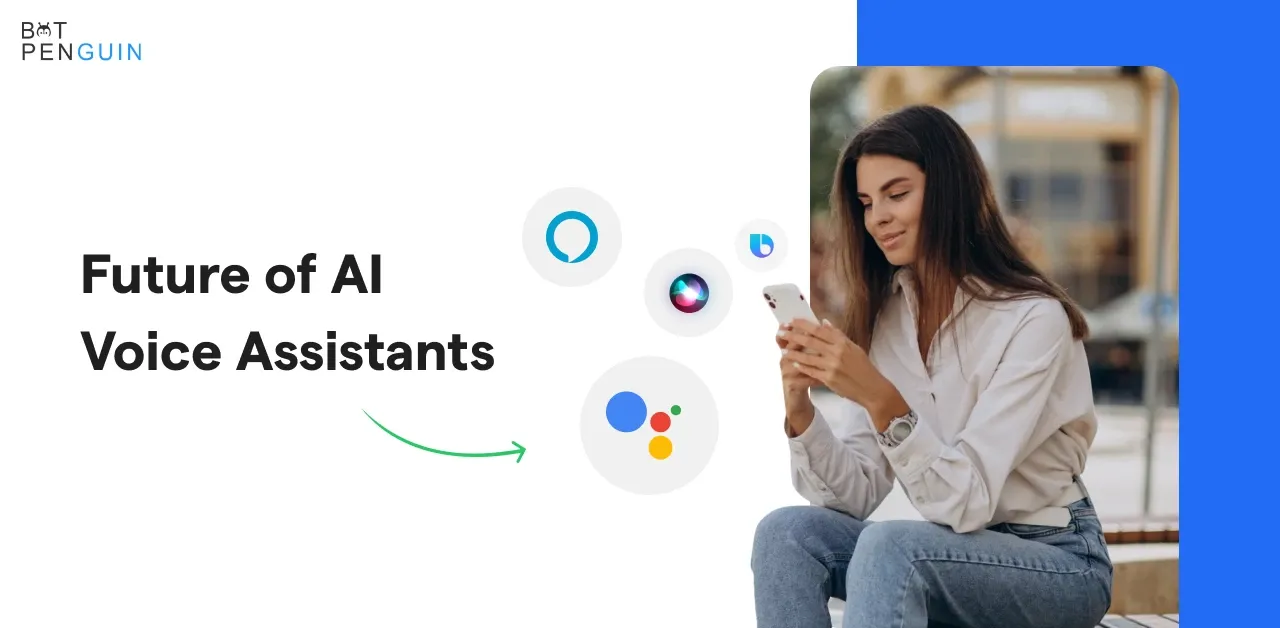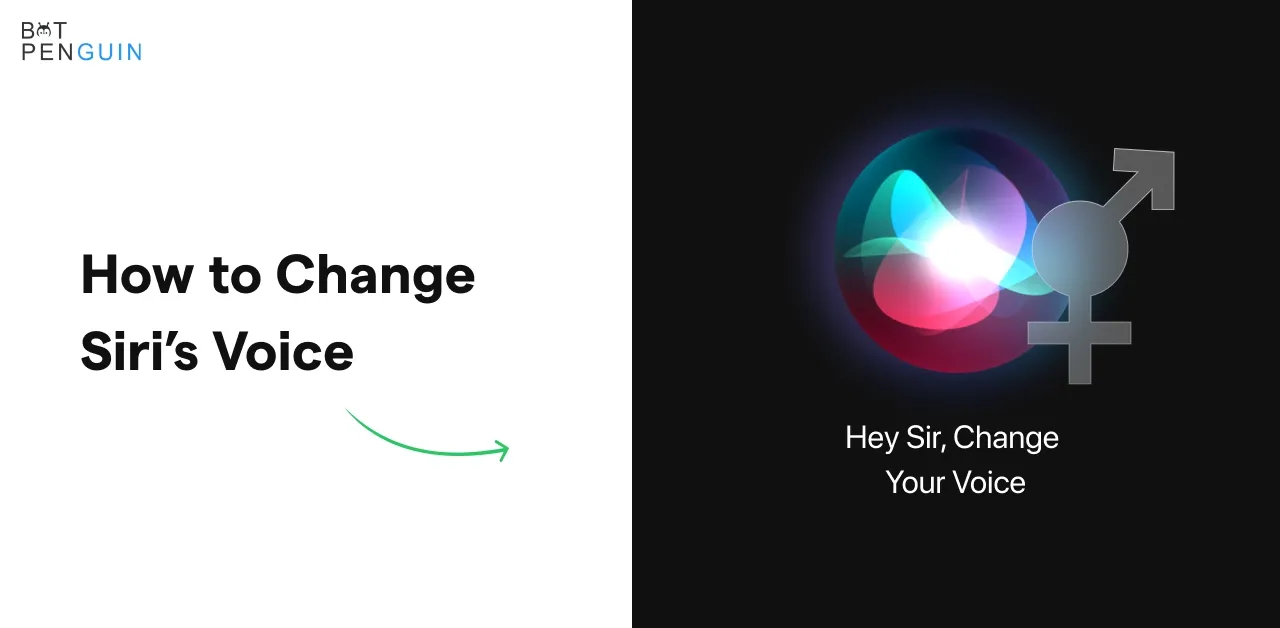Introduction
Have you interacted with a chatbot recently and actually had a positive experience?
AI and automation are transforming customer service, with global spending on AI-enabled CX solutions expected to reach $26.2 billion by 2027 according to Meticulous Research.
Yet while over 75% of organizations now use AI for customer service per Oracle, there are still concerns over the quality of bot interactions versus human agents.
How do businesses walk the fine line between efficiency and customer satisfaction when employing AI in customer service?
That’s where contact center AI comes in. Contact center AI uses AI technologies, such as chatbots and virtual assistants, in customer service and support operations.
Contact center AI automates interactions, provides instant responses, and assists human agents, enhancing efficiency and customer satisfaction in call centers and online support systems.
But is that the true potential of contact center AI?
To know that, continue reading as this article will explore the future of contact centers AI in customer service.
Advancements in AI for Contact Centers
AI technology has revolutionized the way contact centers operate. It enables businesses to automate and optimize numerous processes, leading to more efficient and effective customer service.
With AI, contact centers can handle a large volume of customer inquiries, improve response times, and streamline service workflows.
AI-powered chatbots and virtual assistants
One of the most popular applications of AI in contact centers is the use of AI-powered chatbots and virtual assistants. These digital agents are capable of handling routine customer queries, providing information, and even processing simple transactions.
AI-powered chatbots offer 24/7 support, reducing customer wait times and improving overall customer satisfaction.
Natural Language Processing (NLP)
Natural Language Processing (NLP) is a crucial component of AI in contact centers. Through NLP, AI systems can understand and interpret customer queries, regardless of their phrasing or language.
Chatbots like BotPenguin excel at the NLP capabilities assisting businesses in understanding their customers easily. This leads to more personalized and proactive customer service.
Sentiment analysis
Sentiment analysis helps analyze customer sentiment and emotions. It also enables businesses to understand customer feedback better and provide personalized responses.
Predictive analytics for customer behavior
Predictive analytics uses AI algorithms to analyze vast amounts of customer data. Doing this allows businesses to anticipate customer behavior and preferences.
By leveraging predictive analytics, contact centers can personalize customer interactions, recommend relevant products or services, and proactively address customer needs.
Benefits of Contact Center AI
Now that we've explored the advancements in AI for contact centers, let's delve into the benefits that Contact Center AI brings to businesses.
Improved customer experience and satisfaction
Contact Center AI enhances the customer experience by providing quick and accurate responses to customer inquiries. AI-powered chatbots offer instant support, reducing customer wait times.
Moreover, AI systems can analyze customer data and preferences to deliver personalized recommendations and solutions, leading to increased customer satisfaction.
Increased efficiency and productivity
AI-powered automation in contact centers improves efficiency and productivity by handling routine and repetitive tasks.
By freeing up human agents from mundane tasks, they can focus on more complex and strategic customer interactions. This streamlines processes, reduces errors and ensures faster resolution times for customers.
Cost savings and reduced operational expenses
Implementing Contact Center AI can lead to significant cost savings for businesses. AI-powered chatbots and virtual assistants can handle a considerable volume of customer inquiries, reducing the need for hiring additional human agents.
Additionally, AI systems can optimize resource allocation, ensuring that customer service teams operate at maximum efficiency.
Enhanced customer engagement and personalization
Contact Center AI enables businesses to engage with their customers on a more personalized level. By leveraging AI algorithms and predictive analytics, businesses can offer tailored recommendations, personalized product offerings, and proactive support.
This level of personalization enhances customer engagement and loyalty, leading to long-term customer relationships.
Challenges and Limitations of AI in Customer Service
While Contact Center AI brings incredible benefits to businesses, it is important to acknowledge the challenges and limitations that come with its implementation.
Ethical considerations and data privacy
As AI systems gather and analyze customer data, businesses must prioritize ethical considerations and proper data privacy protocols.
Companies should ensure compliance with privacy regulations and implement robust security measures to protect customer information.
Maintaining human touch and empathy
AI systems excel at processing vast amounts of data and providing quick responses, but they sometimes lack human touch and empathy.
Contact centers must strike a balance between using AI for efficiency and preserving the personal connection customers seek. Human agents are still vital to handle complex inquiries and provide emotional support when needed.
Integration with existing systems and processes
Integrating AI into existing contact center systems and processes can be a complex task. It requires seamless integration with existing platforms, such as customer relationship management (CRM) systems and knowledge bases.
Additionally, businesses must ensure that AI technologies align with their operational workflows to prevent disruption and maximize efficiency.
Ensuring the accuracy and reliability of AI responses
One of the biggest challenges with AI systems is ensuring the accuracy and reliability of their responses. AI algorithms need to continuously learn and improve from real-world interactions to provide accurate and up-to-date information.
Regular monitoring and quality assurance measures are necessary to ensure AI systems deliver accurate and reliable responses to customers.
Implementing Contact Center AI
Artificial intelligence is transforming customer service operations. By augmenting human agents with AI capabilities, contact centers can resolve inquiries faster, engage customers in more meaningful ways, and gain operational efficiencies.
According to MIT Technology Review, up to 23% of organizations now use AI chatbots for customer service. But implementation requires careful planning around use cases, change management, integrations, and rollout.
Here are best practices to drive adoption:
Start Small, Demonstrate Quick Wins
Pilot AI features like virtual assistants or sentiment analysis with one team. Highlight benefits through metrics to build acceptance.
Choose High ROI Use Cases First
Prioritize AI for frequent repetitive inquiries, after-hours coverage, or alerts to support agents. Target applications that augment staff and smooth workflows before replacing tasks outright.
Slowly Introduce AI Interactions
Gradually increase customer touchpoints handled by AI like web chatbots. Monitor satisfaction closely and keep humans in the loop. Avoid plunging fully in.
Develop Staff AI Fluency
Train staff early on capabilities, process changes, and new roles like bot training. Create internal AI guides and resources. Welcome feedback.
Focus on Hybrid Human + AI Model
Emphasize seamless collaboration between AI and agents. AI handles information lookup while agents focus on relationship building.
Continuously Optimize AI Accuracy
Review conversation transcripts and add training data. Refine NLU models to raise satisfaction. AI success depends on ongoing human guidance.
With the right strategic roadmap tailored to use cases, even early AI capabilities can significantly improve customer and agent experiences. But an incremental rollout focused on hybrid human-AI efforts ensures smooth adoption.
Future Trends in Contact Center AI
As Contact Center AI continues to evolve, it brings forth exciting future trends that will shape the customer service landscape. Let's explore some of these trends in contact center AI that professionals in customer service and technology leaders should be aware of.
Predictive customer service using AI
With the power of AI algorithms and predictive analytics, contact centers of the future will be able to anticipate customer needs even before they are expressed.
By analyzing vast amounts of customer data, including purchase history, browsing behavior, and customer interactions, AI systems can predict customer preferences and provide proactive support.
Continuous improvement through machine learning
Machine learning is at the core of Contact Center AI's advancement. As AI systems interact with customers and receive feedback, they can adapt and refine their algorithms, enhancing their efficiency and reliability. This continuous improvement cycle ensures that AI in contact centers remains up to date and delivers optimal performance.
Voice-enabled AI for customer interactions
Voice-enabled AI also allows for hands-free interactions, enabling customers to seek support while multitasking or using mobile devices. This trend enhances accessibility and convenience for customers, while also streamlining contact center operations.
Personalized recommendations and proactive support
AI-powered recommendation engines will play a vital role in future contact centers. By analyzing customer data, AI systems can provide highly personalized recommendations based on individual preferences, previous purchases, and browsing behavior.
Conclusion
In closing, contact center AI has made great strides but still has room for improvement as the technology matures.
When thoughtfully implemented, chatbots and virtual agents can handle common inquiries efficiently, seamlessly handing off to human agents for more complex conversations. The key is blending bot capabilities with human oversight and empathy.
As AI accuracy on par with humans comes closer to reality, bots will become a seamless aspect of customer service versus a novelty. Chatbot platforms like BotPenguin that focus on intuitive conversational AI will help organizations deliver efficient yet humanized support experiences.
BotPenguin is driving AI innovation, using natural language processing and sentiment analysis to train bots that feel more natural and human to talk to. BotPenguin's proprietary AI engine understands context and intent, handling more complex conversational flows across channels.
However, the human touch will always be essential for building connections and trust. Overall, AI-enabled customer service done right improves satisfaction and loyalty while reducing costs a win for consumers and companies alike.
Though bots handle routine cases, delightful service will stay human.
Frequently Asked Questions (FAQs)
What is Contact Center AI, and how does it impact customer service?
Contact Center AI leverages artificial intelligence to enhance customer service by automating tasks, providing instant support, and personalizing interactions for improved customer satisfaction.
How can AI-powered chatbots benefit my contact center?
AI chatbots can handle routine queries, reduce response times, and offer 24/7 support, improving efficiency and freeing up human agents for complex issues.
What are the key trends shaping the future of customer service with AI?
Trends include AI-driven predictive analytics, natural language processing, and the integration of AI into multiple channels for a seamless customer experience.
Are AI-driven virtual assistants capable of understanding and responding to customer emotions?
Advanced AI can analyze customer sentiments and adapt responses accordingly, fostering more empathetic interactions.
How can AI help with data analytics in the contact center?
AI can process vast amounts of customer data to derive insights, enabling better decision-making, personalized service, and predictive maintenance.



